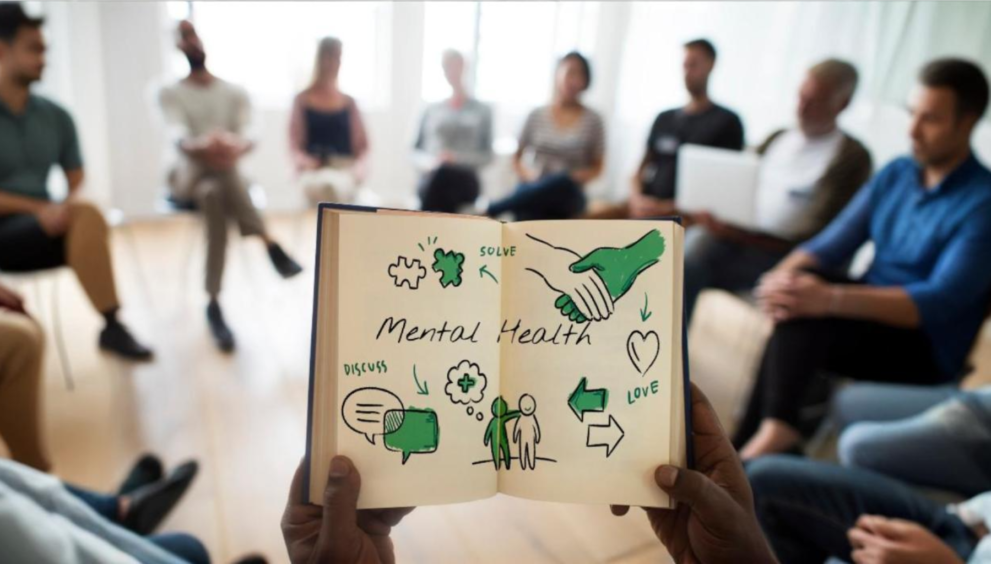World Mental Health Day: How therapy helps many find answers
While psychiatric help is also pivotal for the treatment of certain mental disorders, therapy plays an essential role in maintaining mental health. Therapy is not just about treating diagnosed conditions; it’s about creating space to understand one’s emotions, thoughts, and behaviours before they escalate into larger problems.
Author
Author
- admin / 3 months

- 0
- 7 min read

Author
Adila Matra always unconsciously gravitated towards people who, like her, didn’t fully fit into the expected social moulds, which meant that her circle of friends were mostly neurodivergent (or so they seemed to her). “I never realised I was different because this felt normal… I get anxious in social situations. I was often told I was rude. It took me a long time to warm up to new people,” Matra, who is a Deputy Editor at Trusted Media Brands, shares.
But then the revelation came slowly, in pieces, and only after years of quietly feeling different from the people around her. “It was only when I started dating my now partner, who is neurotypical, that I noticed the contrast. I wasn’t as at ease in social situations as he or his friends were. That made me start questioning myself.”
It was this awareness that eventually led her to therapy. Through guided sessions, she began to explore her experiences, thoughts, and behaviours. “My therapist told me it does sound like you are on the autism spectrum”, she recounts. Receiving a diagnosis brought a sense of relief. “A lot of things that bothered me started making sense.”
Stories like hers underline how therapy can provide a sense of relief, helping individuals untangle their emotions and make sense of their experiences. It allows people to better understand their minds, process anxiety or stress, navigate relationships, and address mental health concerns.
While psychiatric help is also pivotal for the treatment of certain mental disorders, therapy plays an essential role in maintaining mental health. Therapy is not just about treating diagnosed conditions; it’s about creating space to understand one’s emotions, thoughts, and behaviours before they escalate into larger problems. As mental health becomes an increasingly vital part of modern conversations, recognising its depth and the value of seeking help early can pave the way for a more empathetic and mentally balanced society.
What mental health really means
Mental health is more than the absence of mental disorders. It is a state of well-being that enables people to cope with life’s stresses, realise their abilities, learn and work effectively, and contribute to their communities. It must be seen as a basic human right and a crucial component of personal, societal, and economic development.
Yet, in India, there is a large gap between the need for and access to mental health support systems. Approximately 15 per cent of the adult population experiences mental health issues requiring professional intervention. Yet, awareness and access remain low. “70% to 92% of people with mental disorders do not receive proper treatment due to lack of awareness, stigma, and shortage of professionals,” according to data.
Mental health exists on a continuum, experienced differently by every individual. Conditions can range from mild distress to severe impairment, encompassing mental disorders, psychosocial disabilities, and other states associated with distress, functional impairment, or risk of self-harm. People living with mental health conditions may experience lower levels of well-being, but this is not universally the case.
The determinants of mental health are multifaceted. Individual factors such as genetics, emotional skills, and substance use can increase vulnerability, while social, economic, and environmental conditions like poverty, violence, inequality, and climate change also play significant roles. Early life experiences, particularly during developmentally sensitive periods such as childhood, can profoundly influence long-term mental health. Adverse experiences like harsh parenting or bullying can elevate risk, whereas protective factors, including nurturing relationships, education, safe environments, and community cohesion, build resilience and promote well-being.
Breaking the silence around seeking help
Therapy, and the diagnosis of a mental health condition, can provide moments of catharsis – a sense of relief and clarity. It helps individuals make sense of their experiences, process emotions, and navigate life with a better understanding of themselves and their relationships. Beyond alleviating symptoms, it empowers reflection, perspective, and the development of coping strategies.
Evidence from India demonstrates how structured therapeutic interventions can have a tangible impact. The Healthy Activity Program (HAP), documented in The Lancet, showed that people with severe depression experienced significant improvements in mood, functioning, and overall quality of life within three months of receiving therapy from trained lay counsellors in primary healthcare settings.
The Healthy Activity Program (HAP), delivered by lay counsellors alongside enhanced usual care (EUC), was found to be more effective than EUC alone for patients with moderately severe to severe depression in routine primary care in Goa, India. “HAP was readily accepted by this previously untreated population and was cost-effective in this setting. HAP could be a key strategy to reduce the treatment gap for depressive disorders, the leading mental health disorder worldwide,” the study noted.
Similarly, the HOPE study in rural Karnataka demonstrated that patients receiving counselling as part of a collaborative care model showed sustained reductions in depression scores compared to those receiving routine treatment alone. “The findings have potential implications for integrating mental health and chronic disease treatment in resource constrained settings,” it concludes.
Yet therapy and diagnosis do not affect everyone in the same way. Receiving a psychiatric diagnosis in childhood or adolescence can have far-reaching social, emotional, and practical repercussions, particularly for a young person’s self-concept and social identity. A systematic review of qualitative studies collated and analysed 38 high-quality studies to explore this impact. The review found that “diagnosis can sometimes threaten and devalue young people’s self-concept, but can also facilitate self-understanding, self-legitimation and self-enhancement.”
It also noted that a diagnosis can lead to social alienation, stigma, or invalidation, yet “can also promote social identification and acceptance.” The findings highlight the multifaceted ways in which psychiatric diagnoses shape identity and underscore why early, thoughtful engagement with mental health, through therapy or counselling, can be transformative.
‘Mental health is not one-size-fits-all’
Dr Nimesh Desai, Senior Consultant Psychiatrist and Psychotherapist and former Director of the Institute of Human Behaviour and Allied Sciences (IHBAS), emphasised that seeking professional help for mental health should be normalised, much like consulting a doctor for physical issues. “Even if I have physical pain and I don’t know what is causing it, I go to a doctor. Whether it is physical or mental health, expert professional opinion and direction is always helpful,” he explained.
He stressed that mental health problems are not one-size-fits-all. “Therapy, counselling, medicines, or combinations of these need to be tailored to the individual, just like choosing what works best for you in a food court,” he said, highlighting the importance of personalised care.
Dr Desai pointed out that understanding one’s mental health condition can itself provide relief. “Many people report a sense of clarity after receiving a diagnosis and therapy. Simply knowing what you are dealing with is empowering,” he noted.
He also emphasised the importance of awareness and openness, noting that seeking help is not a weakness. Normalising conversations around mental health enables individuals to discuss their struggles, process emotions, and helps those around them gain a better understanding.
However, he cautioned against over-medicalising everyday stress. “Every small, day-to-day problem need not be converted into a mental health diagnosis,” he said, referencing experiences in some Western societies where minor issues were often overpathologized.
Dr Desai emphasised that most mental health problems are eminently treatable with appropriate professional support, but barriers like stigma, lack of awareness, or not knowing where to seek help remain significant obstacles in India. “The first factor is lack of acceptance or awareness that it’s a problem that can be solved. Therapy is a science, and help-seeking should be normalised just like for any other health issue,” he explained.
Also Read: From ‘OCD’ to ‘Depressed’: How people misuse mental health terms in everyday conversation










